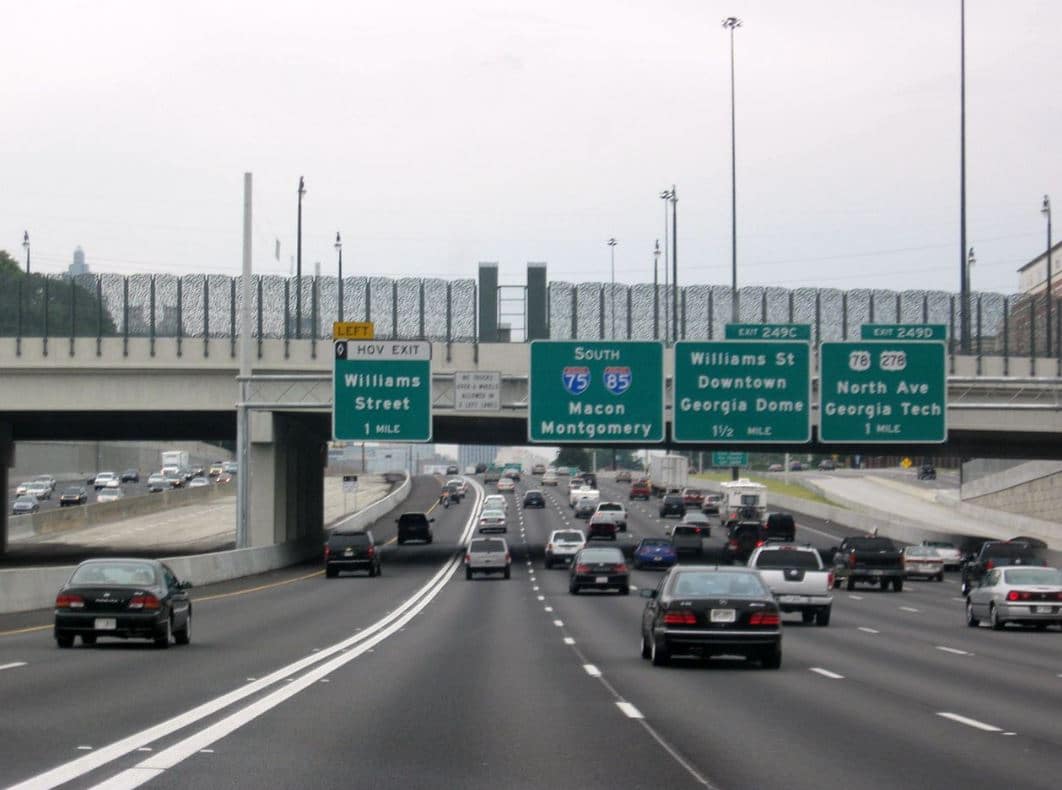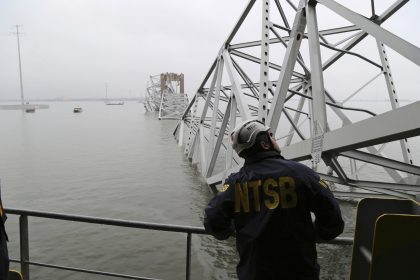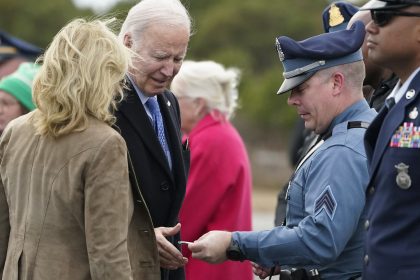Trump Loosens Environmental Rules to Fast-Track Infrastructure Permits

President Donald Trump announced he is loosening the National Environmental Policy Act in a bid to speed up permitting of federal infrastructure projects ranging from highway upgrades to the construction of oil and natural gas pipelines.
The president announced the final changes to the rule at a Wednesday afternoon event at the UPS Hapeville Airport Hub in Atlanta, making the case that lengthy permit processes have held up major infrastructure projects across the country.
“Today’s action completely modernizes the approval review process under the National Environmental Policy Act of 1969, cutting the timeline for a major project from up to 20 years or more … hard to believe … to down to two years or less,” the president said.
“You’re not going to devote a lifetime to doing a project that doesn’t get approved,” Trump said.
“Two years won’t be the exception. It will be the rule,” the president continued, adding that the new process will reduce the time for highway construction to get approved or disapproved by 70% or more.
“It’s going to be very quick – yes or no, after study,” he said.
House Speaker Nancy Pelosi responded to the administration’s actions by saying, “for 50 years, the National Environmental Policy Act has stood as a cornerstone of America’s commitment to environmental stewardship. NEPA’s vital safeguards ensure that every community has a voice in our efforts to build the resilient infrastructure needed to combat the accelerating climate crisis.
“The Trump Administration’s latest anti-science, anti-governance assault on this bedrock protection is another dangerous special interest giveaway that threatens environmental justice and climate sustainability,” she said.
Enacted on Jan. 1, 1970, the National Environmental Policy Act is perhaps best known for its requirements that all federal agencies in the Executive Branch prepare environmental assessments and environmental impact statements on the potential adverse impacts of proposed projects.
The move to revise the 50-year-old law is one of the biggest deregulatory actions of the Trump administration. It is also just the latest step the White House has taken to loosen environmental protections this summer.
Last month, the Environmental Protection Agency announced a temporary policy to allow entities to forego reporting their emissions to the agency if monitoring staff were unable to work during COVID-19 related stay at home orders.
The plan raised concerns among Democrats on the House Energy and Commerce Committee, who were concerned about the open-ended nature of the policy as it was originally announced.
The EPA then set an end date — August 31 — but, at least in the eyes of the committee, continued to leave other issues unresolved.
“While we’re glad the Trump EPA finally responded to our repeated demands to end this reckless policy, the agency either doesn’t know or will not reveal its impacts to either Congress or the American people,” said Committee Chair Frank Pallone, Jr., of New Jersey in a letter to the agency.
The EPA said that in order to be protected under this policy, reporting entities must show the agency proof that they are unable to monitor their pollution due to stay at home orders and other pandemic-related issues.
The EPA also pointed out that most of the monitoring is done by state agencies, but the committee had concerns with that as well, Pallone said.
“While states are key partners when it comes to enforcing environment and human health protections, it is EPA’s responsibility to make sure that certain states are executing their authorities in accordance with federal law,” the letter said.
A handful of states, including North Dakota, Louisiana, Alaska, and Illinois have not adequately upheld environmental laws because they are “philosophically opposed,” according to an Obama-era report by the EPA.
There are also concerns with cuts to the budgets of state environmental agencies across the country since the recession. Sixteen states cut their pollution control programs by 20% or more, according to a report by the Environmental Integrity Project.
The Committee stated that these funding issues “further underscore the need for robust federal oversight of state enforcement programs.”
“Make no mistake: we will never tolerate the COVID-19 crisis being used as cover to weaken environmental and human health protections,” Pallone said. “This policy had no business being put into effect, but fortunately it will be coming to an end soon.”
























